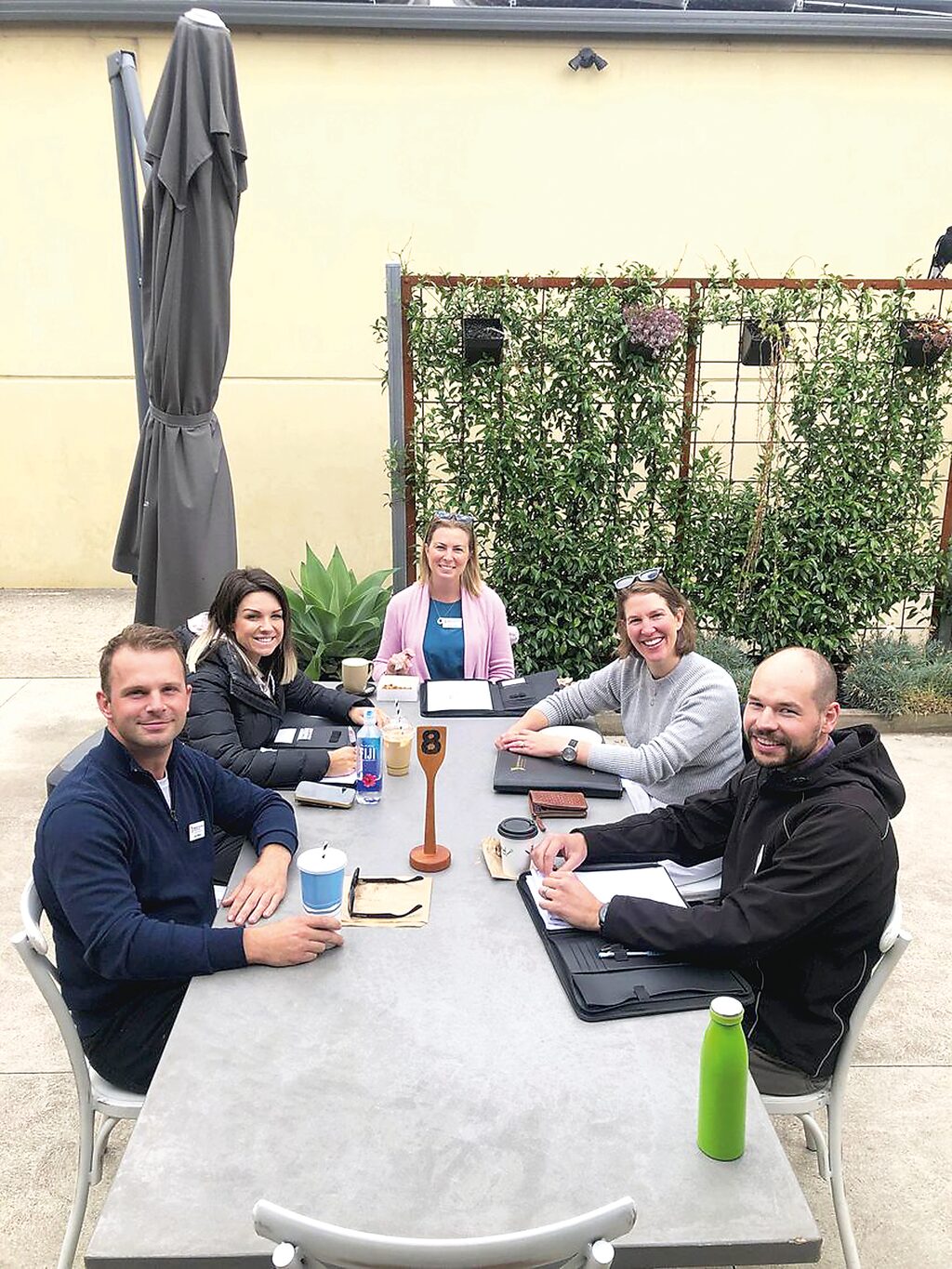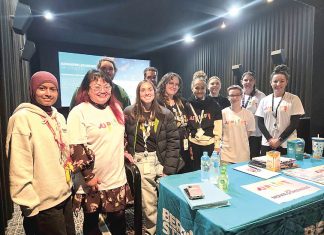
ZAIDA GLIBANOVIC
By ZAIDA GLIBANOVIC
IMPROVING accessibility is the goal for the Wheely Serious Project. While the name is a reflection of the light-hearted nature of the people behind the project, they are ‘wheely serious’ about accessibility. The Gippsland Community Leadership Program (GCLP) has concentrated their minds and efforts on raising awareness for wheelchair accessibility across Gippsland. When a business is deemed as wheelchair accessible, they receive a sticker to display on their window, letting wheelchair users and carers know whether their premises is accessible. The project’s work is easy to see as the black and green sticker decorates hundreds of shop fronts across Gippsland and the Latrobe Valley. The idea formed from a desire to work with the community to understand the barriers limiting wheelchair accessibility. One of the group’s members, Jessica Evans’ son Karter, was born with cerebral palsy and requires a wheelchair. Ms Evans found herself ready to become a disability advocate after experiencing accessibility issues on a daily basis with her son. Karter and his mother’s lived experience struck a chord with the group, which opted to rally behind the issue. Belinda Griffin, a Westbury dairy farmer from the GCLP, spoke on the great advocacy work the project does in order to improve accessibility standards. “In our group of five, we have Jessica with a son in a wheelchair … she planted the seed and we all grew the idea from there,” Ms Griffin said. “The purpose of our project is to create awareness of wheelchair accessibility in Gippsland. If it’s helpful for wheelchair (users), it’s helpful for everyone else.” Renee Hutchinson, Ms Evans, Ms Griffin, Andrew Stanton and Joshua Stanton quickly got to work to find a campaign that could make a big change. The group wanted to come from a community focus lens, to work alongside stakeholders to reach better outcomes for all. Despite the sticker initiative being quite small in physical size, it has created massive waves in raising awareness and opening inclusive conversations. The project focuses on grassroots change, walking local streets to raise the accessibility issue. “It’s been blood sweat and tears – us walking the pavement – going in and opening these conversations with these shop fronts, talking about what they can change to make themselves more accessible,” Ms Griffin said. Ms Griffin said that some shops have portable ramp access, which most wheelchair uses wouldn’t know unless they asked, but with the ‘wheely serious’ project sticker, people can avoid the uncertainty. “What we’re finding in Gippsland … some of the buildings are so old they’re heritage listed and changes can’t be made to the front of them,” she said. This is where those minor changes like portable ramps play a huge part in providing access and where a simple sticker plays a huge role, Ms Griffin explained. While the ‘recognise sticker’ program begins with shop fronts across Gippsland, the group has ideas to expand. The project has garnered interest from countless stakeholders, across council, neighbouring states and from local health organisations eager to help when the project wraps up soon. “We’ve been in discussion with local health organisations wanting to partner with us so they can take on the project once we’re finished with it,” she said. Ms Griffin said the thought of improving lives like Karter’s – helping him with the ability to live independently, socially and included – continued to be the big driving force behind the campaign. The project has received a whirlwind of positive reaction and engagement from across Gippsland; with many people ready to get onboard and foster more disability-inclusive spaces, the work has only just began for the Wheely Serious Project. “Lots of the hard work has already been done, we’ve made a really good start,” she said. “It’s not perfect but it’s opening those discussions with shop owners to get them on board to make Gippsland an accessible place for everyone. “We really view the world from a different lens now.” While the Disability Discrimination Act of 1992 paved the way with national and legal binding accessibility standards, some existing premises can do more to make sure they can comply. Some issues that the Australian Human Rights Commission found through consultation included barriers at entrances and items in aisles, accessible checkout lane closures and frequent locking of accessible toilets. Gippsland has about 20,000 people requiring wheelchair access; that’s 20,000 potential customers if businesses make themselves more accessible, Ms Griffin says.











